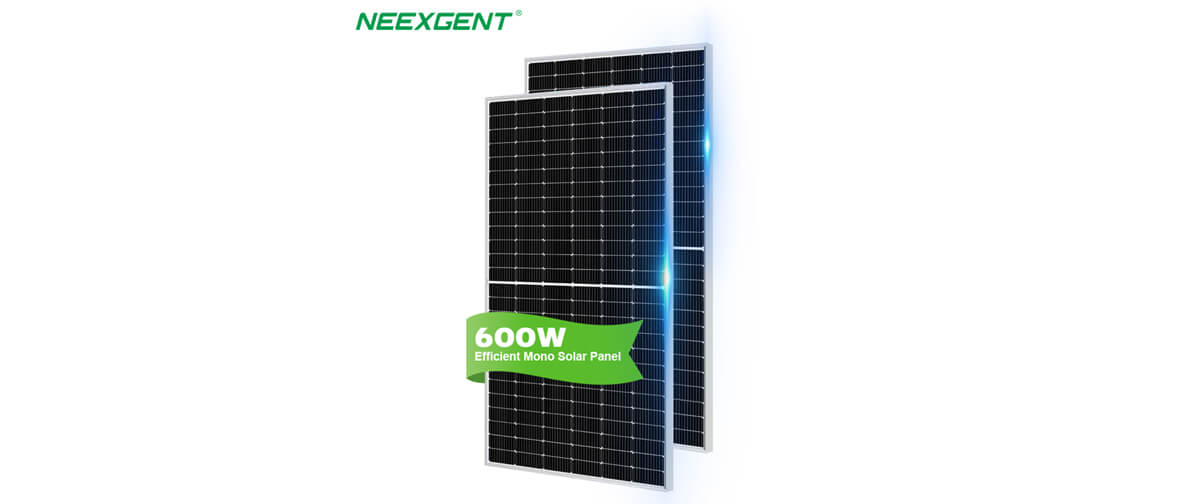In today's world, the importance of renewable energy is becoming more and more apparent, and solar energy, as one of the most promising sources of energy, is attracting widespread attention worldwide. And on the African continent, the South African solar panel industry is emerging as a key player in leading the renewable energy revolution with its remarkable momentum and huge potential.
As one of the most industrialised and economically developed countries on the African continent, South Africa faces the twin challenges of energy supply and environmental sustainability. However, South Africa is blessed with solar energy resources, with long average sunshine hours and high radiation intensity, making solar power one of the country's most promising renewable energy options. To address the challenges of energy demand and climate change, the South African government has developed a series of policies and measures to actively promote the development and utilisation of solar panels.

Monocrystalline Solar-panel
The South African solar panel industry has seen phenomenal growth over the past few years. Firstly, the government has put in place a number of incentive policies, including the Solar Electricity Procurement Programme (REIPPPP) and the Renewable Energy Development Programme (REDP), to attract domestic and foreign investors to solar power projects. These policies have provided a stable market and good returns for solar panel manufacturers and investors, attracting significant capital flows into the sector. Secondly, South African research institutes and universities have been active in research and innovation to continuously improve the efficiency and reliability of solar technology. These efforts have provided a solid foundation for the development of the solar panel industry in South Africa.
The development of the solar panel industry in South Africa has had a positive impact on the country's economy and society. Firstly, the rise of the solar panel industry has created a large number of jobs, particularly in manufacturing, installation and maintenance. This has not only reduced unemployment, but has also raised the standard of living of the local population. Secondly, the spread of solar power has reduced South Africa's dependence on imported coal and oil, reducing the burden of energy imports and contributing to the country's energy security. In addition, solar power reduces greenhouse gas emissions and plays a positive and important role in the fight against climate change. As one of the countries with high carbon emissions in the world, South Africa has made a positive contribution to the global fight against climate change by effectively reducing greenhouse gas emissions through the large-scale adoption of solar panels.

600W Mono Solar Panels 156 Cell
The development of the solar panel industry in South Africa has contributed to the growth of the local economy and technological progress. The supply chain and service system required for the manufacture, installation and maintenance of solar panels has created business opportunities for related industries, including the manufacturing of glass, aluminium, electronic components and more. At the same time, the continuous innovation in solar technology has also driven up the level of science and technology in South Africa, promoting the development and application of clean energy technologies. This will provide a more solid foundation for South Africa's leading position in the renewable energy sector, and will also help to create a competitive high-tech industry.
The South African solar panel industry still faces a number of challenges and opportunities. Firstly, while the government is supportive at policy level, the policy framework needs to be further refined and strengthened to provide a more stable and predictable investment environment. Secondly, the cost of solar panels remains relatively high and further reductions in manufacturing costs and improvements in technical efficiency are needed to enhance their competitiveness in the energy market. In addition, infrastructure development and grid access is a key issue, and more investment is needed to ensure the smooth delivery and supply of renewable energy.
The South African solar panel industry plays an important role in the renewable energy sector and is leading the way in the development of a sustainable energy revolution. The government's policy support, research and innovation and industrial development have provided a favourable environment for the development of the solar panel industry in South Africa. Through the large-scale adoption of solar panels, South Africa has not only achieved its goals of energy diversification and environmental protection, but has also contributed to economic growth and social development. With further technological advances and market expansion, the South African solar panel industry will continue to play an important role and make a greater contribution to the global clean energy transition.
The South African solar panel industry is facing a huge market opportunity. As the global demand for renewable energy continues to grow, solar power has become an important option for countries to transform their energy sources. As one of the most dynamic and promising economies on the African continent, South Africa's solar panel industry has a broad market prospect. Its geographical location and abundant solar energy resources have made South Africa a regional hub for energy exchange and cooperation, attracting international investment and partner attention.

Mbb Half Cell Mono 670w Solar Panel
With the advancement of technology and the gradual development of the scale effect, the cost of solar panels in South Africa has been decreasing, making solar power gradually commercially competitive. Particularly in remote and rural areas, the application of solar panels can help solve the problem of inadequate energy supply and power cuts, providing a reliable source of electricity and improving the living conditions of local residents. In addition, as an industrialised country, South Africa's factory, commercial building and residential markets offer a vast potential market for the installation of solar panels, further driving the industry's growth.
There are a number of challenges to be faced and measures to be taken to achieve sustainable development of the solar panel industry in South Africa. Firstly, technological innovation and research and development are key to driving the industry forward and reducing costs. The South African government should increase its support for research institutions and universities to encourage technological innovation and talent development, and to promote further breakthroughs in solar technology. Secondly, the establishment of a sound policy and regulatory framework is key to ensuring the healthy development of the industry. The government can provide more incentives to encourage investors to participate in solar power projects, and strengthen regulation and supervision of the industry to ensure fair competition in the market and the rights of consumers.






